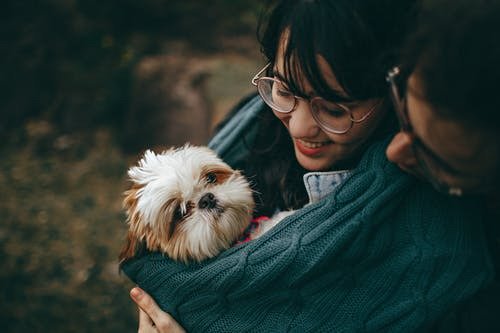Raising a puppy is an adventure teeming with cuddles, playtime, and the occasional messy accident. But there’s much more to puppyhood than the basics of feeding and care. A key aspect of raising a well-rounded canine is ensuring they learn important social skills from a young age. Just as children need to learn how to interact with others, puppies need to be taught how to behave around both humans and their fellow four-legged friends.
The Importance of Puppy Socialization
Social skills for puppies are about more than just being friendly. They involve understanding canine body language, how to play nicely, when not to jump on people, and recognizing when to back off.
Learning these skills early on can help prevent behavioral problems in the future, ensuring your furry friend becomes a polite and confident adult dog. But where can your puppy learn these all-important life lessons safely? Let’s explore.
Safe Sources of Puppy Socialization
1. Puppy Classes
-
Controlled and Safe Environment
-
Professional Trainers
-
Interaction with Diverse Group of Puppies
2. Dog Parks and Play Areas
-
Exposure to Different Breeds and Sizes
-
Real-World Experience
-
Opportunities for Free Play
3. Play Dates with Neighbors’ Dogs
-
One-on-One Interaction
-
Familiar Environment for Comfort
-
Building Long-Term Canine Friendships
Introducing a Newly Adopted Puppy to the Pack
If you’ve got more than one pet already at home, you’ll know the tension that a new addition can create. Your new puppy must learn how to interact and live harmoniously with their new housemates. First impressions count, so make sure to introduce them in a neutral space to avoid territorial disputes. Creating positive associations through treats and praise during these initial meetings builds a foundation for a lifelong bond.
Supervised Playgroups
There’s nothing quite like a group of romping, happy puppies. Supervised playgroups, often held at local pet stores or community centers, offer a perfect opportunity for your pup to play and learn from others. Experienced supervisors ensure play stays safe and teachable moments are capitalized upon, guiding your puppy in the art of polite play and interaction.
Choosing the Right Group
-
Consider Your Puppy’s Size and Temperament
-
Look for Small, Age-Appropriate Groups
-
Ask About the Supervisor’s Experience and Approach
Observing and Learning
-
Watch How Your Puppy Interacts with Others
-
Note Areas for Improvement
-
Take Tips from Professionals on How to Continue Training at Home
Tips for At-Home Socialization
Sometimes, organized socializing opportunities are only available sometimes, or you prefer to take things at your own pace at home. There’s plenty you can do to socialize your puppy within the safety of your environment, using every encounter as a teaching moment. Exposing your pup to various sights, sounds, and experiences at home ensures they won’t be overwhelmed when they finally step out into the world.
Exposure to Household Activities
-
Introduce Vacuums and Other Appliances
-
Get Used to Different Types of Foot Traffic
-
Desensitize to Doorbells and Phones
Guest Visits
-
Encounter Various People and Children Under Supervision
-
Teach Polite Greetings and Manners
-
Ensure a Positive Experience with Treats
Ensuring Safety During Socialization
Safety should always be your top priority when socializing your puppy. This means choosing secure environments, making sure your puppy is up to date on vaccinations, and never forcing your puppy into a situation that seems to scare them. Knowing your puppy’s limits and comfort levels is key, and pushing them too far too fast isn’t safe or effective.
Keeping an Eye Out
-
Monitor Play for Signs of Stress or Aggression
-
Be Ready to Intervene If Necessary
-
Use Positive Reinforcement to Encourage Good Behavior
Health Precautions
-
Vaccination Status of Your Puppy and Other Dogs
-
Parasite Prevention and Control
-
Cleanliness of the Environment
Pet Boarding
There may be instances where you’ll need to travel without your furry companion. In these cases, facilities offering dog boarding services can be an invaluable resource. Not only do these establishments provide a safe place for your puppy to stay, but they also offer a unique socialization experience. In the company of different dogs and caring staff, your puppy can continue to hone their social skills even when you’re away.
Puppy Socialization and Comprehensive Dog Care
A well-socialized puppy often requires an all-encompassing approach to their development, which is why opting for a form of comprehensive dog care offered by trusted facilities like Central Bark can be beneficial. Services like these may include training classes, daycare, grooming, and even wellness checks to ensure your puppy’s physical and emotional needs are being met as they grow and learn.
Local Services for Dog Care
When seeking dog care services, consider facilities in your area that may offer a combination of the services mentioned above. For example, in Gurnee, IL, pet owners might look for reputable centers that provide a one-stop solution for all things puppy care. From socializing to grooming, finding a local service that meets all your requirements can make the process of raising a well-adjusted puppy significantly easier.
Final Thoughts
Socialization is a critical component of your puppy’s development and should be noticed. By exposing your pup to a variety of controlled and safe environments, you lay the groundwork for a happy, well-behaved adult dog. Remember to practice patience, stay vigilant, and enjoy the journey of watching your furry little ones learn and grow through their interactions with the world around them.




